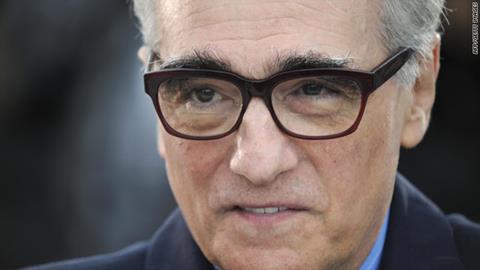Martin Scorsese’s The Film Foundation is among the organsiations working with India’s Film Heritage Foundation on a film preservation workshop that kicks off this week (Feb 26-March 6).

Overseas partners also include The International Federation of Film Archives (FIAF), George Eastman Museum, the Selznick School of Film Preservation and Italy’s L’Immagine Ritrovata. In addition to Film Heritage Foundation, established by Indian filmmaker Shivendra Singh Dungarpur, local organisers include the National Film Archive of India (NFAI) and Viacom18.
“The language of cinema is universal,” said Scorsese, announcing the workshop. “In a time of great divisions, conflicts, transformations, it’s really crucial to preserve and share our cultural patrimonies and to ensure that this universal language will speak to future generations around the world.”
The 10-day workshop, which will take place at NFAI’s headquarters in Pune, covers the technology and ethics involved in film preservation as India races to save its film heritage. “This is a unique opportunity to meet with leading experts in the field, attend practical hands on preservation and restoration workshops, presentations and screenings of restored films,” Scorsese said.
Film Heritage Foundation held the first edition of the workshop in Mumbai last year, which encouraged the Indian government to establish the National Film Heritage Mission to work on preservation projects.
This year the workshop has tapped experts including Paolo Cherchi Usai, senior curator of the George Eastman Museum; L’Immagine Ritrovata director Davide Pozzi; former BBC Research archivist Richard Wright; and FIAF head of technical commission David Walsh. In addition, Thelma Ross from the Museum of Modern Art, New York, will conduct sessions on documentation and cataloguing.
Restoring India’s film output across multiple languages is a huge job that is complicated by the country’s hot and humid climate and the fragmented nature of its film industry. Most Indian films have been made by family-run production houses, rather than big studios, so few large libraries of films exist.
Many of India’s classics have already been lost. Only two reels remain of India’s first feature film, Dadasaheb Phalke’s 1913 Raja Harishchandra, and there is no longer any copy of India’s first talkie, Alam Ara, directed by Ardeshir Irani in 1931.
Film Heritage Foundation founder Shivendra Singh Dungarpur previously directed a well-received documentary, Celluloid Man, about P.K. Nair, a passionate archivist who founded the National Film Archive of India.
The Film Foundation’s World Cinema Project has helped restore 26 films from 19 countries including Indian filmmaker Uday Shankar’s Kalpana, which screened at Cannes in 2012.















![[L-R]: Amanda Villavieja, Laia Casanovas, Yasmina Praderas](https://d1nslcd7m2225b.cloudfront.net/Pictures/274x183/6/4/1/1471641_pxl_20251224_103354743_618426_crop.jpg)






No comments yet